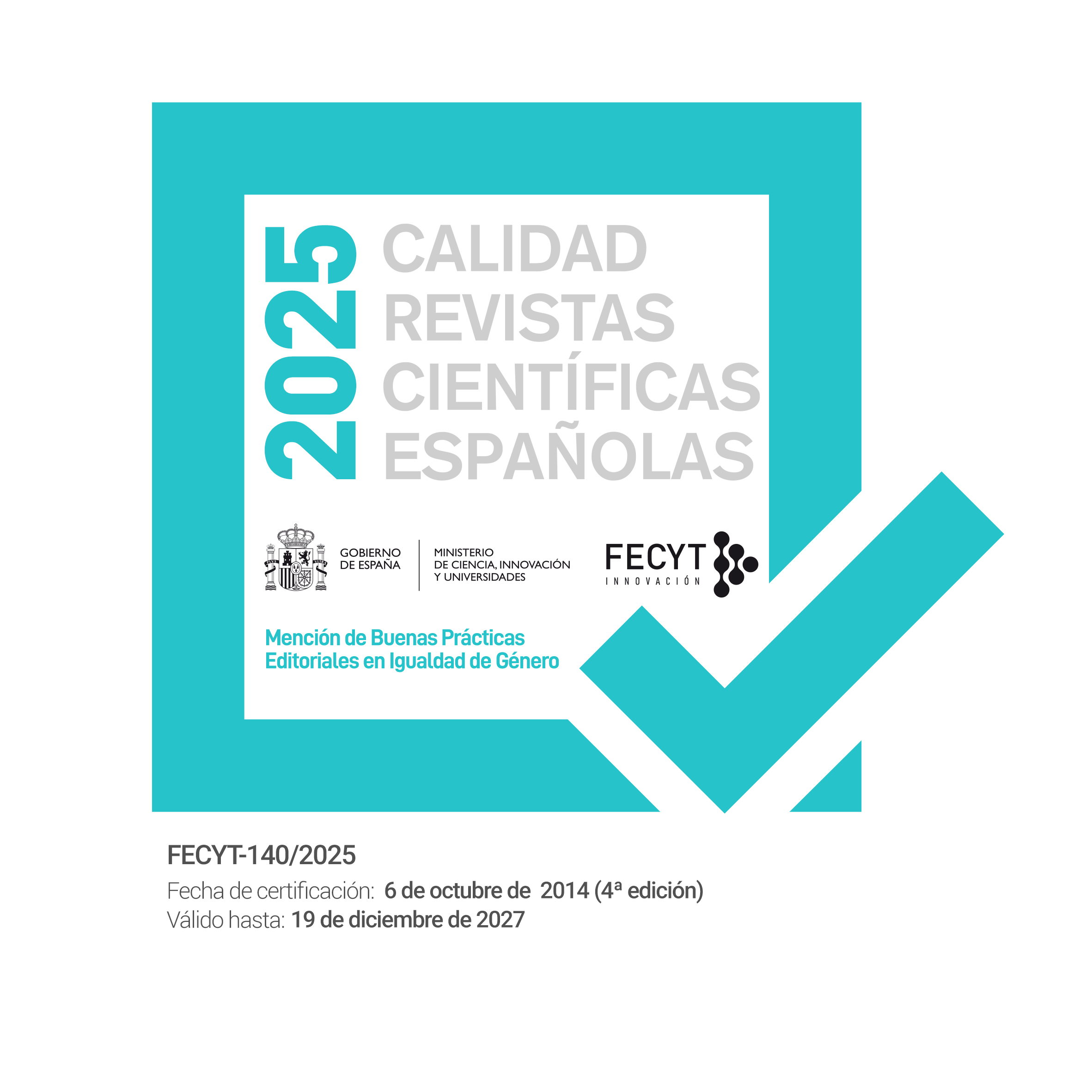QUALITY FACTORS AND ELEMENTS PERCEIVED BY THE PARTICIPATING TEACHERS IN THE TUTORIAL ACTION PLAN FOR EUROPEAN UNIVERSITIES
DOI:
https://doi.org/10.5944/educxx1.23874Keywords:
Tutoring, Guidance, Research Projects, Higher Education.Abstract
The research based on the analysis of the Tutorial Action Plan for
the different European universities has focused on the improvement of this
guidance service offered by the higher education schools. The aim of this
study is to detect the factors and elements that determine quality tutoring as perceived by the professors of European universities. The research is part of the R&D Timonel project for the elaboration of a recommendation system based on the needs of guidance and tutoring of students and graduates.
A total of 48 professors from the University of Jaén (Spain), the University
of Granada (Spain), the Polytechnic Institute of Coimbra (Portugal) and
the Queen Mary University of London (United Kingdom) participated in
nominal groups and SWOT techniques. The results were shown in reference
to three large dimensions included in the project and defined as the main
trends of tutorial action: Academic, Personal and Professional, adding a
fourth transversal dimension detected by the participants in the analysis
of the data. The participants reveal how teacher training in terms of
orientation, knowledge and experience of these as well as the involvement
and commitment of both the tutor and students in the tutorial action are
some of the factors and elements that determine quality tutoring. Despite
the research, there are many efforts that have to be made so that the tutorial action in European universities acquires the excellence that this university service requires.
Downloads
References
Alemán-Ramos, P.F. (2018). Guidance and digital technology in the 21st Century: implications for the university. El Guiniguada. Revista de investigaciones y experiencias en Ciencias de la Educación, 27, 22–33. http://doi.org/10.20420/ELGUINIGUADA.2018.203
Álvarez González, M. (2008). La tutoría académica en el Espacio Europeo de la Educación Superior. Revista Interuniversitaria de Formación del Profesorado, 22(1), 71–88.
Álvarez González, M., y Álvarez Justel, J. (2015). La tutoría universitaria: del modelo actual a un modelo integral. Revista Electrónica Interuniversitaria de Formación del Profesorado, 18(2), 125–142. http://doi.org/https://doi.org/10.6018/reifop.18.2.219671
Álvarez González, M. y Bisquerra, R. (1996) (Coords.). Manual de orientación y tutoría. Barcelona: Praxis.
Álvarez Rojo, V. (2000). Orientación en los procesos de enseñanza-aprendizaje en la universidad. En H. Salmerón y V. López (Coords.), Orientación educativa en las universidades (pp. 47-77). Granada: Grupo Editorial Universitario.
Álvarez Pérez, P.R. (2012). Los planes de tutoría de carrera : una estrategia para la orientación al estudiante en el marco del EEES. Educar, 48(2), 247–266.
Bellantonio, S. (2018). Fostering personal knowledge and competences in higher education guidance processes. In V. Boffo & M. Fedeli (Eds.), Employability & Competences: Innovative Curricula for New Professions (pp. 305–315). Firenze, Italy: Firenze University Press.
Braslavsky, C., Abdoulaye Anne, A., & Patiño, M.I. (2003). Developpement curriculaire et “Bonne practique» en Éducation.
Recuperado de https://bit.ly/2YVUK3L
Campoy, T.J., y Pantoja, A. (2000). La orientación en la Universidad de Jaén. Revista Española de Orientación Psicopedagógica (REOP), 11(19), 77–106.
Castaño, E., Blanco, A., y Asensio, E. (2012). Competencias para la tutoría: experiencia de formación con profesores universitarios. Revista de Docencia Universitaria, 10(2), 193–210.
De Pablos, J., Colás-Bravo, P., Ramírez, T.G., y Cortés, R.J. (2007). La adaptación de las universidades al Espacio Europeo de Educación Superior. Un proceso metodológico para el diseño de planes estratégicos. Revista de Investigación Educativa, 25(2), 533–554.
Dopico, E. (2013). Tutoría universitaria: propuestas didácticas de competencia tutorial. Revista de Docencia Universitaria, 11(2), 195–220.
Dunworth, K. & Santiago Sanchez, H. (2016) Perceptions of quality in staffstudent written feedback in higher education: a case study. Teaching in
Higher Education, 21(5), 576-589.
https://doi.org/10.1080/13562517.2016.1160219
Escudero, J. M., González, M.T., y Rodríguez, M. J. (2017). Los contenidos de la formación continuada del profesorado: ¿Qué docentes se están formando? Educación XX1, 21(1).
http://doi.org/10.5944/educxx1.20183
Ferguson, P. (2011). Student perceptions of quality feedback in teacher education. Assessment & Evaluation in Higher Education, 36(1), 51-62. https://doi.org/10.1080/02602930903197883
Fernández Batanero, J.M. (2012). Capacidades y competencias docentes para la inclusión del alumnado en la educación superior. Revista de la Educación Superior, 41(162), 9–24.
Galaz, J.F., Padilla, L.E., Gil, M., y Sevilla, J.J. (2008). Los dilemas del profesorado en la educación superior mexicana. Calidad en la Educación, 28, 53-69. http://doi.org/10.31619/caledu.n28.202
Giner, Y., Muriel de los Reyes, M.J., y Toledano, F.J. (2013). De la tutoría presencial a la virtual: la evolución del proceso de tutorización. Revista de
Docencia Universitaria, 11(2), 89–106.
González-Herrera, A.I., Blanco Hernández, P.J., Márquez-Domínguez, Y., y García-Mesa, M.E. (2017). La acción tutorial y la orientación educativa en la educación de adultos; una propuesta de revisión y mejora de las tutorías en radio ECCA. European Journal of Open Education and E-Learning Study, 2(2), 116–137. http://doi.org/10.5281/zenodo.1136222
Gros, B., y Lara, P. (2009). Estrategias de innovación en la educación superior: el caso de la Universitat Oberta de Catalunya. Revista Iberoamericana de Educación, 49, 223–245.
Hernández, M.R., González, J.M.R., y Mayea, T.H. (2016). La labor educativa del docente universitario desde un enfoque integral en su modo
de actuación. Pedagogía y Sociedad, 19(45), 26–43.
Hounsell, D., McCune, V., Hounsell, J. & Litjens, J. (2008). The quality of guidance and feedback to students. Higher Education Research & Development, 27(1), 55-67, 10.1080/07294360701658765
McMillan, J.H. & Schumacher, S. (2005). Investigación Educativa. Una introducción conceptual (5ª Ed). Madrid: Pearson.
Michavila, F. (2003). La tutoría y los nuevos modos de aprendizaje en la universidad. Madrid: Cátedra UNESCO de Gestión y Política Universitaria.
Mogollón de González, A. (2006). Éxito del tutor universitario. Revista Ciencias de la Educación, 27, 109–122.
Molpeceres, M., Lucas, A., y Pons, D. (2000). Experiencia escolar y orientación hacia la autoridad institucional en la adolescencia. Revista de Psicología Social, 15(2), 199–217.
http: / /doi.org/10.1174/021347400760259820
Narro, J., y Arredondo, M. (2013). La tutoría. Un proceso fundamental en la formación de los estudiantes universitarios. Perfiles Educativos, 35(141), 132–151.
Pantoja, A. & Campoy, T.J. (Coords.). (2009). Planes de acción tutorial en la universidad. Jaén: Universidad de Jaén.
Patton, M.Q. (2015). Qualitative Research & Evaluation Methods: integrating theory and practice (4a Ed.). London, UK: Sage.
Phillips, F. & Wolcott, S. (2014) Effects of Interspersed versus Summary Feedback on the Quality of Students’ Case Report Revisions. Accounting Education, 23(2), 174-190. https://doi.org/10.1080/09639284.2013.847328
Rodríguez Espinar, S. (1997). Orientación universitaria y evaluación de la calidad. En P. Apodaca y C. Lobato (Eds.), Calidad en la universidad: orientación y evaluación (pp. 23-67). Barcelona: Laertes.
Rodríguez Espinar, S. (2005). La gestión en la calidad de educación retos y trampas. Aula de Encuentro: Revista de Investigación y Comunicación de Experiencias Educativas, 9, 127–137.
Rodríguez, G., Gil, J., y García, E. (1996). Metodología de la investigación cualitativa. Málaga: Editorial Aljibe.
Rumba, B., & Gómez, T.F. (2011). La acción tutorial en un contexto universitario masificado y la reivindicación europea de su valor formativo. Revista de Formación e Innovación Educativa Universitaria, 4(1), 13–34.
Sanz Oro, R. (2006). Tutoría y orientación en la Universidad. Recuperado de https://bit.ly/2XSQ1Dj
Sobrado, L.M. (2008). Plan de acción tutorial en los centros docentes universitarios el rol del profesor tutor. Revista Interuniversitaria de Formación del Profesorado, 61, 89–108.
Sursock, A., & Smidt, H. (2010). Trends 2010: A decade of change in European Higher Education. Brussels, Belgium: European University Association.
Te Wierik, M.L.J., Beishuizen, J., & van Os, W. (2015). Career guidance and student success in Dutch higher vocational education. Studies in Higher Education, 40(10), 1947–1961.
http://doi.org/10.1080/03075079.2014.914905
Zabalza, M.A. (2007). La didáctica universitaria. Bordón, 59(1–2), 489–509.
Downloads
Published
How to Cite
Issue
Section
License
Copyright (c) 2019 Educación XX1

This work is licensed under a Creative Commons Attribution-NonCommercial 4.0 International License.
Educación XX1 is published under a Creative Commons Attribution-NonCommercial 4.0 (CC BY-NC 4.0)










